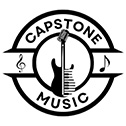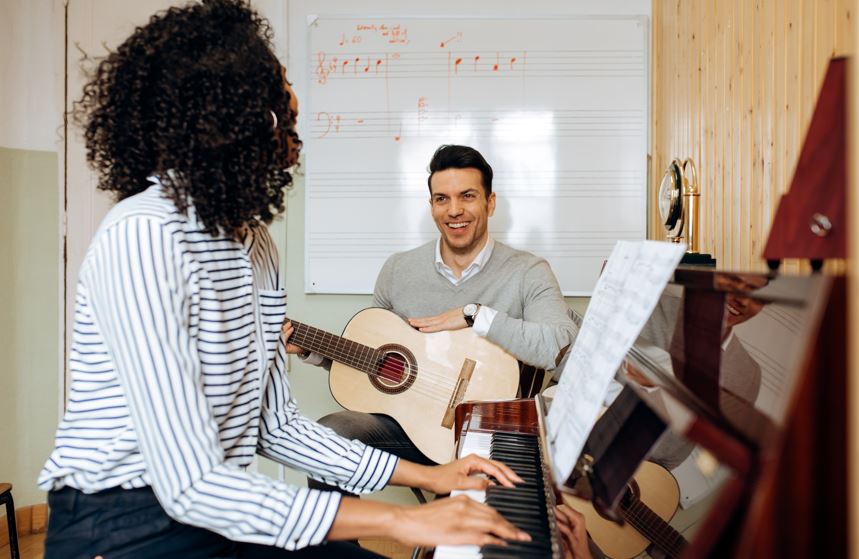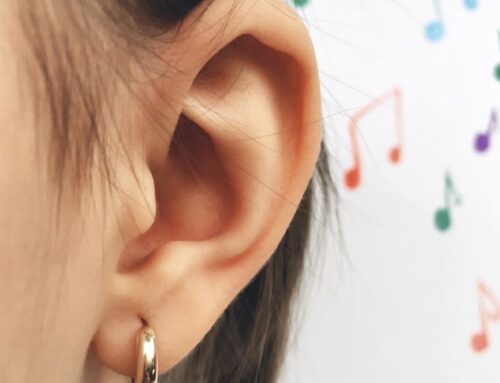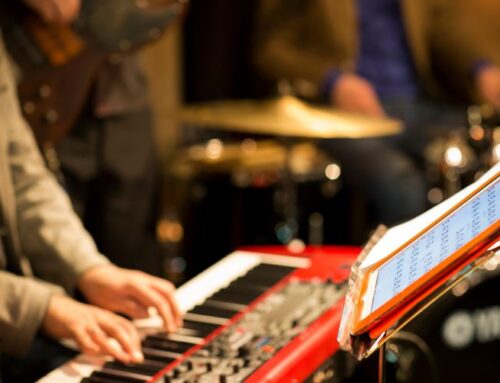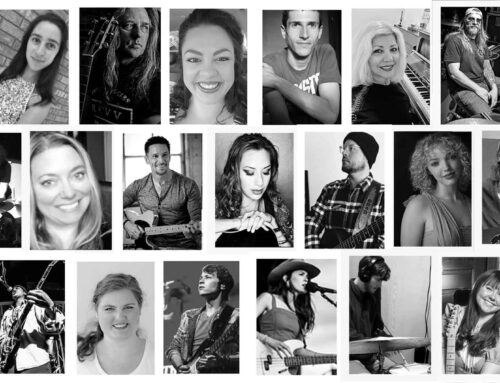You love music and you’ve decided to take music lessons – great! Embarking on a musical journey is exciting, yet choosing the right instrument can be a challenge. Which is best? Two of the most popular choices for beginners are the guitar and the piano. Here we explore the age-old debate of whether it’s easier to learn the guitar or the piano, offering insights and considerations for aspiring musicians. Spoiler – ultimately, the decision rests on personal preferences and interests. Yet, consider the following:
Guitar vs. Piano: Comparing the Learning Curve:
-
- Guitar: The Stringed Symphony: Learning the guitar is often seen as a more accessible option for beginners. With only six strings and a plethora of online tutorials, aspiring guitarists can quickly grasp basic chords and strumming patterns. The fretboard layout might seem intimidating initially, but the visual nature of the instrument allows for easy pattern recognition. Many beginners find joy in playing simple songs with just a few basic chords, making the learning process feel less daunting.
- Piano: The Harmonious Keyboard: The piano, on the other hand, presents a more structured approach to music theory. It offers a visual representation of musical notes, scales, and chords, making it an excellent choice for those interested in understanding the fundamentals of music. However, the complexity of coordinating both hands and the sheer number of keys may present a steeper learning curve for some. Patience and practice are key when tackling the piano, but the rewards can be significant.
Considerations for Each Instrument:
-
- Guitar: The Portable Pleasure: One of the guitar’s major advantages is its portability. Whether you’re strumming by the campfire or playing on a stage, the guitar offers the freedom to take your music anywhere. Additionally, the availability of various guitar types (acoustic, electric, classical) allows players to choose an instrument that suits their preferred style.
- Piano: The Versatile Virtuoso: While the piano may lack the portability of a guitar, it compensates with its versatility. The wide range of octaves and the ability to play melody and harmony simultaneously make the piano a powerhouse for composition and arrangement. Pianists can seamlessly transition to other keyboard instruments, broadening their musical horizons.
Thoughts from a Leading Music Educator:
To shed light on the debate, we reached out to the founder of Capstone Music, in Burlington, ON. He’s a musician and instructor who has worked with dozens of leading music teachers and thousands of children over several decades. He shares his insights::
Learning Guitar: “The guitar’s tactile nature makes it a great choice for beginners. Feeling the strings and exploring different playing styles can be incredibly rewarding. Plus, the camaraderie among guitarists is fantastic – you can join a jam session with just a few chords under your belt.”
Learning Piano: “While the piano may seem challenging at first, the structured layout facilitates a deeper understanding of music theory. It’s like a puzzle that, once solved, unlocks a world of musical possibilities. If you’re drawn to classical or jazz genres, the piano is an excellent foundation.”
The Overriding Factor in Selecting Piano or Guitar
In the eternal debate of guitar vs. piano, the answer ultimately lies in personal preference. To that end, it’s important to go to a local music instruction centre that has teachers who instruct on both and allow you to even try each for a period. Both instruments offer unique advantages and challenges. Aspiring musicians should consider what resonates with them the most – the portable allure of the guitar or the versatile grandeur of the piano.
Whether you strum chords or tickle the ivories, the journey of learning a musical instrument is a fulfilling experience. Embrace the learning process, stay committed to practice, and, most importantly, choose the instrument that aligns with your passion. After all, the joy of making music is not in the instrument itself but in the connection between the artist and their chosen muse. Happy playing!
